Democracy will not come today, this year nor ever through compromise and fear
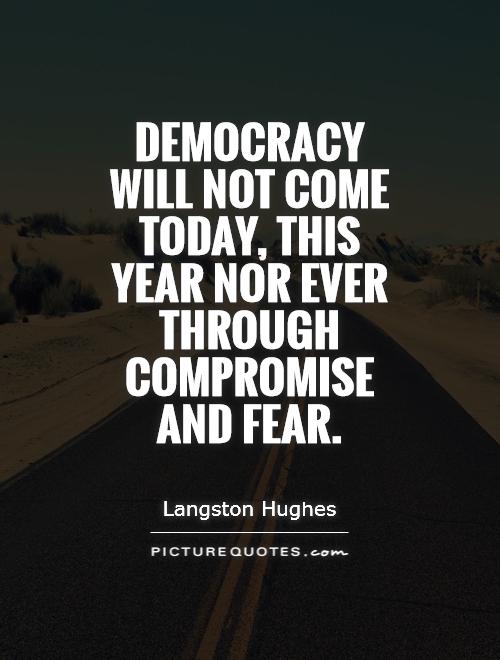
Democracy will not come today, this year nor ever through compromise and fear
Langston Hughes, a prominent figure in the Harlem Renaissance and a powerful voice for civil rights and social justice, understood the complexities and challenges of achieving true democracy in America. His words, "Democracy will not come today, this year nor ever through compromise and fear," resonate deeply in today's political climate.Hughes believed that true democracy could not be achieved through half-hearted compromises or through the perpetuation of fear. He understood that in order to truly achieve democracy, there needed to be a radical shift in the way society operated. This meant confronting the deep-seated inequalities and injustices that plagued American society, particularly for marginalized communities.
Hughes was a staunch advocate for racial equality and believed that true democracy could only be achieved when all individuals were treated with dignity and respect, regardless of their race, gender, or socioeconomic status. He understood that compromise and fear were tools used by those in power to maintain the status quo and prevent meaningful change from occurring.
In his poetry and writings, Hughes often spoke out against the injustices faced by African Americans and other marginalized communities. He used his platform to shed light on the systemic racism and discrimination that pervaded American society, calling for a more inclusive and equitable democracy.
Hughes' words serve as a powerful reminder that achieving true democracy requires courage, determination, and a willingness to confront the uncomfortable truths that lie at the heart of our society. It requires a commitment to justice and equality for all, even when it means challenging the existing power structures and systems of oppression.
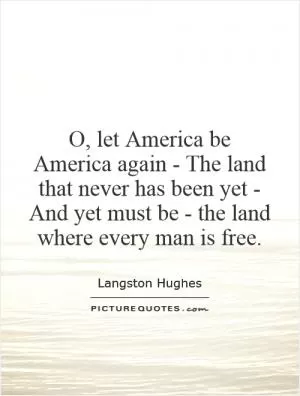

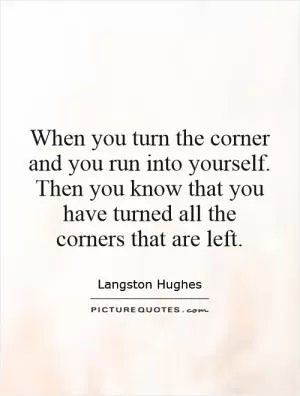



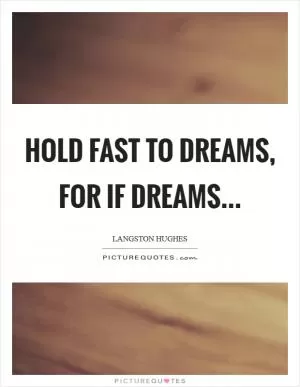


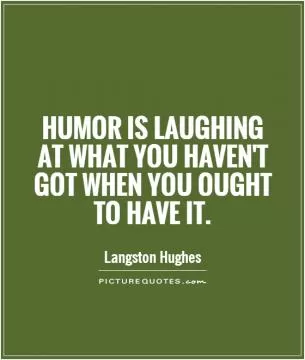
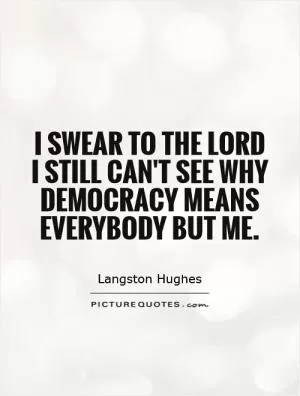
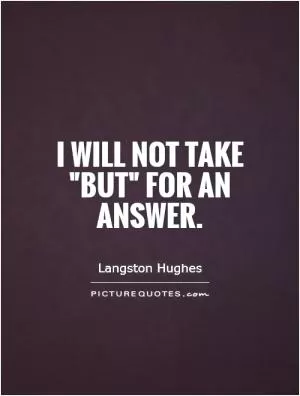
 Friendship Quotes
Friendship Quotes Love Quotes
Love Quotes Life Quotes
Life Quotes Funny Quotes
Funny Quotes Motivational Quotes
Motivational Quotes Inspirational Quotes
Inspirational Quotes